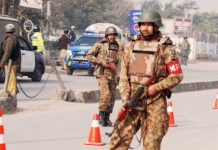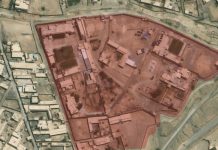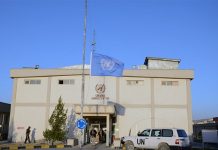By Mazaar Baloch
Dera Ghazi Khan, named after Baloch Sardar Ghazi Khan Mirani, is a bordering district of Punjab adjacent to Balochistan. It comprises four tehsils: Dera Ghazi Khan, Kot Chutta, Taunsa, and the tribal area of Koh-e-Suleiman. With a population of approximately 3.3 million, the district has a clear ethnic majority of Baloch people.
Despite its rich cultural heritage, Dera Ghazi Khan remains one of the most underdeveloped districts in the region, lacking basic necessities such as clean water, food, healthcare, and other essential services. Due to the scarcity of fresh water, the local population has long suffered from life-threatening diseases such as cholera, typhoid, and hepatitis. However, an even deadlier menace has emerged—cancer.
Unlike many infectious diseases, cancer is not caused by bacteria or viruses. Its prevalence in Dera Ghazi Khan is linked to environmental factors, particularly uranium extraction in the Koh-e-Suleiman mountain range. With the discovery of uranium in this region, Pakistan initiated mining operations in areas like Baghalchur and Zain. According to the Nuclear Regulatory Commission (NRC) protocols, uranium waste must be disposed of far from human settlements. However, local Baloch tribesmen report that radioactive waste is being dumped openly in the mountains without proper safety measures.
Uranium is a naturally occurring metal found in the Earth’s crust, and while humans encounter small amounts of it in daily life, prolonged exposure to high levels of radiation can have severe health consequences. Reports from locals indicate that cancer cases have surged dramatically over the past two decades. The worst-affected areas are in the tribal belt, where nearly every household has a cancer patient due to direct exposure to radioactive waste. In addition to radiation exposure, the contaminated rainwater collected in mountain ponds further exacerbates the crisis, as residents rely on it for drinking and domestic use.
The severity of the situation forced an entire settlement near Baghalchur to be abandoned, with residents migrating to Dera Ghazi Khan city in a desperate attempt to save their loved ones. This was not a natural migration but a forced displacement due to state negligence. Cancer has affected people of all ages, from newborns to young adults and the elderly, leaving no demographic untouched.
The Pakistan Atomic Energy Commission (PAEC) continues to expand its uranium-related projects in Dera Ghazi Khan and Koh-e-Suleiman, further endangering local communities. Research indicates that uranium exposure leads to severe health conditions, including bone marrow cancer, liver cancer, lung cancer, and kidney failure. A study conducted in 2011 by Doug Brugge and Virginia Butcher explored the effects of uranium on human health, concluding that uranium contamination in air, water, and soil is nephrotoxic, genotoxic, and causes abnormal human development.
International regulations, such as those outlined by the International Atomic Energy Agency (IAEA), mandate strict safety measures for uranium mining. Clause 8 of the IAEA handbook requires proper radioactive waste management and the implementation of protective measures for both the public and workers. However, these guidelines are blatantly disregarded in Dera Ghazi Khan.
The extent of government negligence is evident in the lack of healthcare facilities. Despite being the most cancer-affected district, Dera Ghazi Khan does not have a dedicated cancer ward in its district hospital. While local organizations are conducting studies to estimate cancer-related deaths, government authorities remain silent, failing to acknowledge the crisis or provide official statistics. This lack of action amounts to the systematic genocide of a vulnerable population, further exacerbating the suffering of those affected.
If immediate steps are not taken to address this environmental and health catastrophe, the people of Dera Ghazi Khan will continue to suffer at the hands of state indifference. The government must take responsibility, enforce international safety protocols, and establish healthcare facilities to mitigate the damage already done. Failing to do so will only accelerate the ongoing tragedy—one that is preventable with the right measures in place.
Disclaimer: The views and opinions expressed in this article are those of the author and do not necessarily reflect the official policy or position of The Balochistan Post or any of its editors.





























